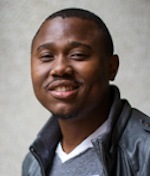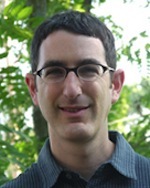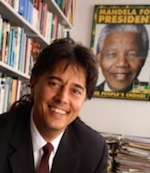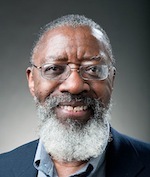Campus mourns Nelson Mandela
As the UW–Madison campus community remembers anti-apartheid icon and former South African President Nelson Mandela, who died last week at age 95, faculty and students with strong connections to the man and his country shared their reflections with Inside UW.
Bongani Mbatha, graduate student in the Department of African Languages and Literature

Bongani Mbatha
Nelson Mandela meant so many things to so many people. To black South Africans like myself, he meant hope. He gave us hope, for instance, that a black South African can study the arts, sciences, social sciences, or any other subject, at the university. During the apartheid era, black South Africans were allowed to study very few subjects; you could study to become either a teacher, or a nurse, or worse, a policeman.
When Mandela obtained his law degree, his goal was to challenge the oppressive legal system, dominated by racist white men, which required black South Africans to carry identity books to work or even to walk in South African cities. As South Africans, together we say: “Hamba kahle Tata Mandela, uThixo akusikelele” (“Farewell Father Mandela, God bless you”).
Neil Kodesh, professor of African history and director of the African Studies Program

Neil Kodesh
Like countless others, I reacted to the news of Nelson Mandela’s death last Thursday with an intense sense of grief and loss. I have a personal connection with South Africa and a longstanding interest in the country’s history: I was born in South Africa and lived there until the age of ten; my great uncle, Wolfie Kodesh, was a well-known South African Communist Party activist who hid Mandela in his apartment for two months in 1961; and I’m an historian of Africa. Yet I don’t think any of these personal or professional connections to South Africa account for my reaction to Mandela’s death.
The reasons Mandela’s death provoked such an emotional response from me are both more mundane and more profound. They are more similar, I imagine, to the reasons why the story of Mandela’s life continues to resonate with current UW–Madison undergraduate students, most of who were born around the time Mandela became president of South Africa in 1994. Mandela refused to accept the status quo and paid dearly for his political activism. But he did so with a sense of respect for the humanity of his political opponents that distinguished him from others. This is the reason he became an international symbol of human dignity and hope for a better future. This is the reason his death has prompted an outpouring of emotion from people throughout the world. And this is the reason we all honor his life and mourn his death.
Xolani Buthelezi, graduate student in African Languages and Literature, native of South Africa and member of the African National Congress

Xolani Butheiezi
I saw Dr. Nelson Mandela when I was in 5th grade at an African National Congress Rally in Newcastle. He was addressing thousands of ANC members, specifically [about] the importance of education. It’s when I heard one of his famous phrases, “Education is a powerful tool that could change the world.” He also encouraged us to have peace and harmony and work together. He emphasized that we must follow what was written in a congress held in Kliptown, Johannesburg in 1956: “South Africa belongs to all who live in it. Black and White must share equal justice, privilege and rights.”
In his speech that he made in Durban during violence between ANC and IFP (Inkatha Freedom Party), he also motivated thousands of us by calling for an end to violence. That is when I officially joined his organization in 1999, when he was leaving office as president. His words motivated me because I went to school and completed my metric in 2004 and continued with my education at University of Witwatersrand and now I’m studying in the United States as a graduate student.
Lala Ngoxolo Tata (Rest in Peace Tata). Amandla!
Heinz Klug, UW law professor and an honorary senior research associate in the School of Law at the University of the Witwatersrand, Johannesburg, South Africa
As an anti-apartheid activist in the mid-1970s, I thought of Nelson Mandela as a distant, imprisoned icon.

Heinz Klug
Before I went into exile in Botswana in 1979 the only image I had of Mandela came from snatched glances of smuggled pamphlets with outdated, poorly reproduced photos of Mandela in the prison yard on Robben Island.
The possession of any images or words of Mandela were illegal in apartheid South Africa, and although I had read a line or two from his most famous speeches, he was a distant figure, almost mythic – certainly not a man we ever thought we would see in person, much less vote for as the country’s first democratically elected president.
Like most activists, I had no expectation that we would ever see Mandela walk free. When that moment came I was in Lusaka, Zambia, at the headquarters of the African National Congress. With millions of others around the world we watched in anticipation, waiting until Mandela finally appeared on our small black and white TV, walking out of the gates of the prison with his fist held high, claiming both his freedom and asserting his militant rejection of apartheid, a system that denied basic rights to most South Africans based on the color of their skin.
Richard Ralston, Professor Emeritus, African, African-American, and Caribbean History

Richard Ralston
Mandela will be remembered as a teacher, a prison memoirist, a pragmatic but principled politician, and political template for divided societies. I consider myself deeply, personally affected by Mandela. As much as anyone I have known — in a life of fortunate interactions with transformative figures within a South Africanist pantheon … King, Tutu, Brutus, Nhato Motlana, the Biko family, Donald Woods, Albie Sachs, Angela Davis, and members of the ANC — Nelson Mandela claims a unique perch. Whenever I teach prison writings Madiba is a virtual class participant. In any writing project about South African political movements I must refer to Madiba. Or in a history of African–African-American linkages his example ever relevant, and any course dealing with the heroic idea or political leadership finds in him a solid touchstone.
I was made most poignantly aware of the man called Madiba when conducting research (1970s, 1980s, and 1990s) amidst the villages in the home region of Nelson Mandela in South Africa’s eastern Cape. My research focused on sorting out the struggles of the ANC to make itself modern, relevant, and effective in face of the rise to power of the first apartheid government in South Africa in 1948, and sorting out disputes among African nationalists on what kind of alternative politics and resistance campaign to mount against it.
